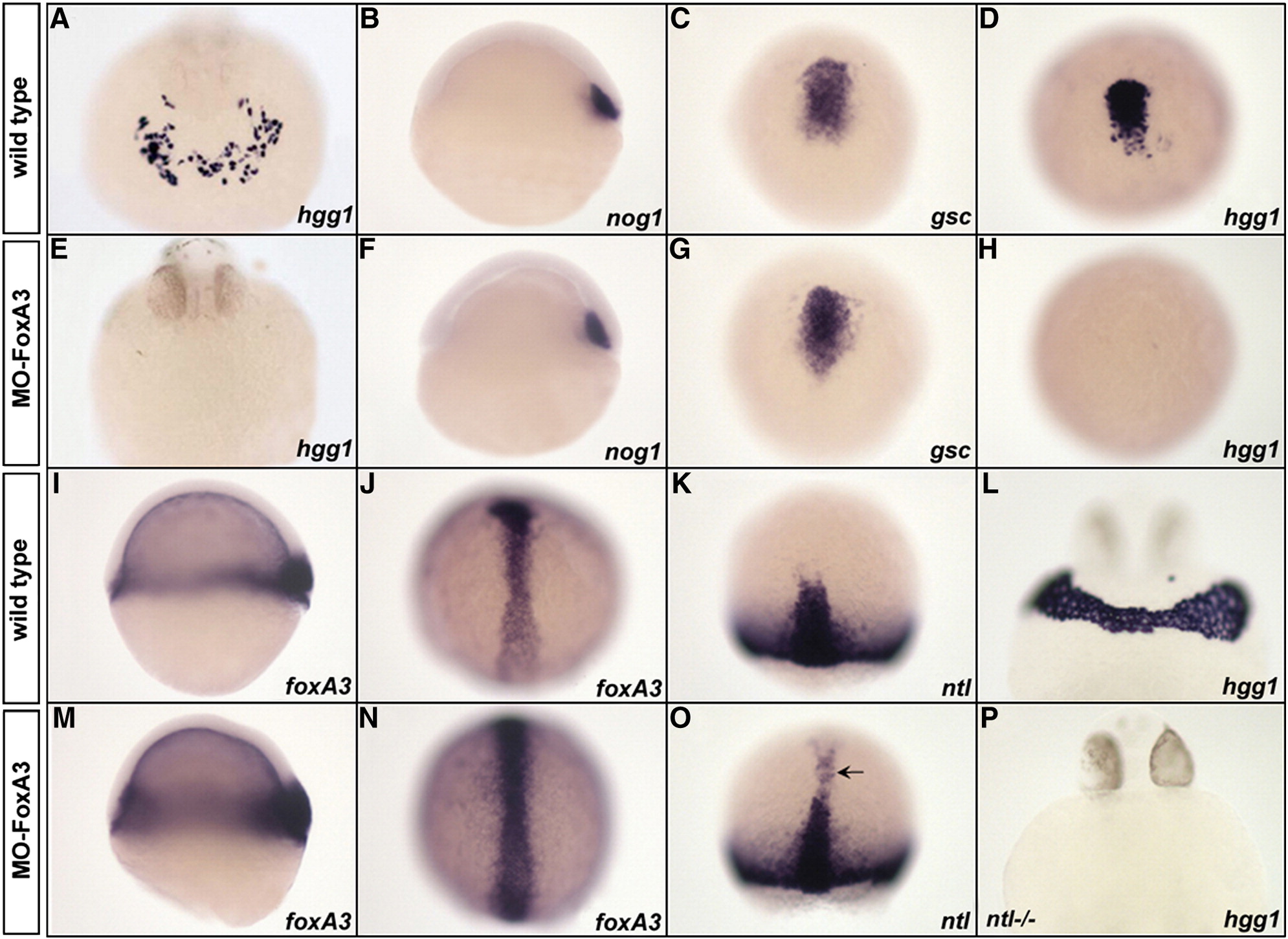Fig. 2
Fig. 2 Phenotype of FoxA3 morphants. (A and E) FoxA3 morphants do not present any cells expressing the hatching gland marker hgg1 at 24 hpf (E) compared to wild-type (A). (B?D, F?H). Analysis of prechordal plate (nog1 and gsc) and hatching gland (hgg1) marker expression during gastrulation in wild-type (B?D) and FoxA3 morphants (F?H). At shield stage, nog1 expression is normal in FoxA3 morphant (F). At 80% epiboly, gsc is correctly expressed in FoxA3 morphant (G), while hgg1 expression is absent (H). (I?J, M?N) foxA3 expression is increased at early (M) and late gastrula stage (N) in FoxA3 morphants compared to wild-type (I and J). (K and O) ntl is ectopically expressed in the prechordal plate of FoxA3 morphant (arrowhead, O) compared to wild-type (K) at 80% epiboly. (L and P) Injection of MO-FoxA3 prevents the formation of hatching gland in ntl/ mutant at 30 hpf. (A, E, L, and P) Frontal views, dorsal up. (B, F, I, and M) Lateral views, animal pole up. (C, D, G, H, J, K, N, and O) Dorsal views, animal pole up.
Reprinted from Developmental Biology, 350(2), Dal-Pra, S., Thisse, C., and Thisse, B., FoxA transcription factors are essential for the development of dorsal axial structures, 484-495, Copyright (2011) with permission from Elsevier. Full text @ Dev. Biol.

